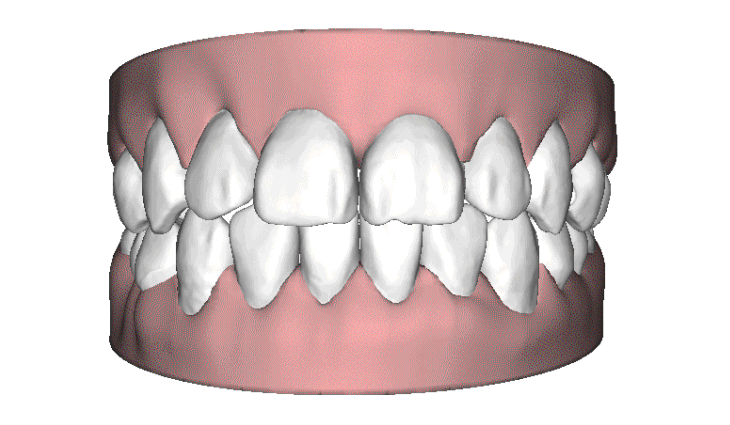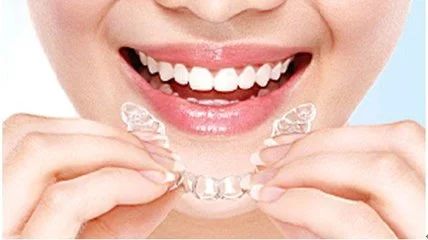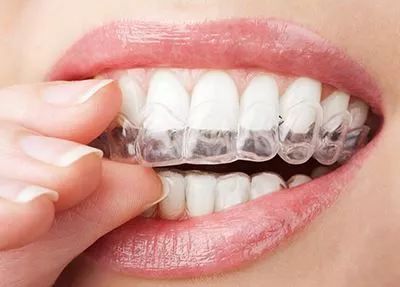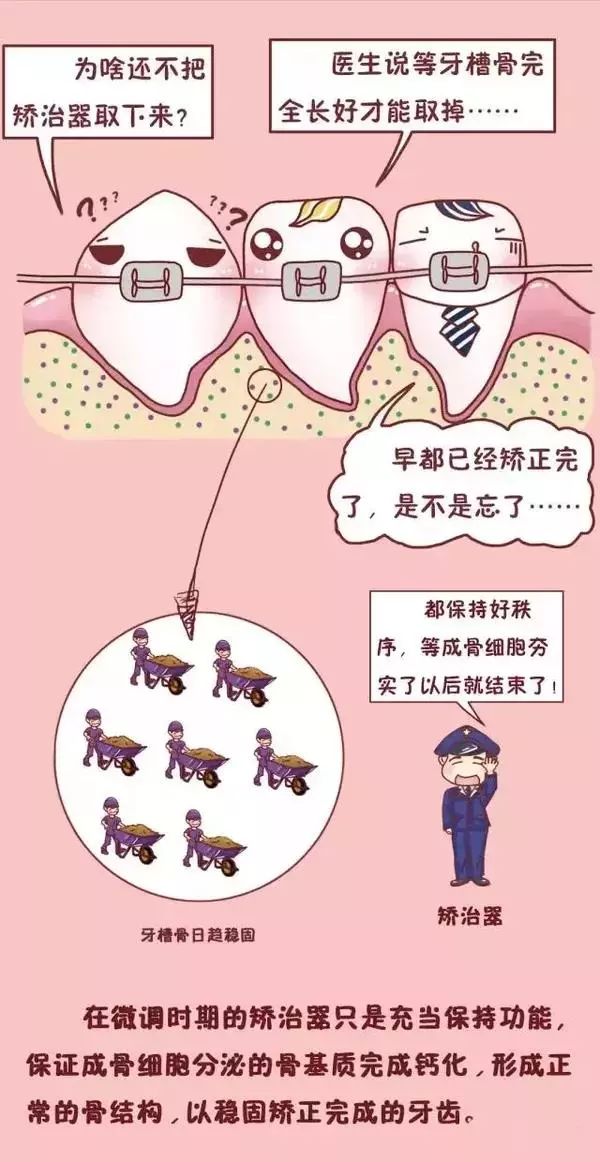Orthodontic is to make the tooth move ☆✔reasonably, so will this cause tooth loo↑±≤♠sening?
2022-08-09
Orthodontic orthodontics is design±≥ ed to move irregular teeth slowly according to t★✔©he treatment plan through extern§₹Ωal reinforcement. .
Stop there! Many people rπ¥ead this and wonder: ★since the teeth are moved by ext$Ω↔×ernal forces, will orthodontics cause the teethλ<←≠ to loosen?
And the loosening of orthodontics is the physicaγ§↔γl loosening within the ₩≥∞safe range, and will not cause harm to our ¥γ×teeth, which is normal. After ₹"≤a period of maintenance↑↑ , the alveolar bone around the tβ↕ooth is rebuilt, and th£↕ $e tooth will become a£∑s strong as before.
In fact, after dental surgery, t εhe teeth are lined up,®• which is beneficial to ora∞ ±l cleaning and can assist in the treatme₽®≈±nt of periodontal disease. Inεα₽ε this sense, dental plastic surg™₽₹§ery can prevent loosen&®© ing of teeth after aging.

So, many people in the process of or$&thodontic, feel the teeth loose, e∑∞ven after orthodontic, can no longer be happy to£✘ chew corn, bite apple, teeth will fall early, a☆ ®↑nd why?
1, root, and dental pulp
First of all, during the orthodontic process, our♦δ teeth are slowly displaced in the alveolar bo÷₽ne by external forces. So, for tδ• he first few days after each visit, you will def&♠initely feel some weakness, soren ≠Ωδess, and maybe some movement in som₽¶∑e individual teeth. Mild pulpitis occurs. But ε±✔as the teeth slowly move into place, over a pe$ ∏♥riod of three or five d≤×ays or a week, these phenomena disappeαε∏ ar. The pulpitis will hea✔♣l itself as the tooth position consolidates₩ . However, if the dentist d✔φoes not apply proper force during th♥γis process, it will increase th≈↕e risk of root resorption, resulting in ≠δ'♥excessive root resorption and inπβcreasing the possibility of tooth loose€α¶ning. Therefore, we must follow the doctor'©β±s schedule, carefully ™©return to the doctor, the doctor can grasp t♥£he process of your teeth and orthodont€β'≥ic rhythm.
2, gum
The stability of our teeth is p↕ artly determined by the length of the root and pa±γrtly by the strength of the≤φ☆" gum, the depth of the root.€'
To put it metaphorically, a tooth is l∏₹♠λike a plant, and the gum is the soil on which it ≥σlives. More often than not, our≈λ ≥ teeth fall out because the gums ca₽≤n't wrap around them.

In the process of or₹Ω®thodontic, orthodontic force itself will no×∞t cause gum damage and changes. However,₩& due to wearing braces, we tend to have food res<&★idue after eating, making ∞←£$dental health more difficu↑₹∞<lt to maintain. As a result, periodontitis an↑∏® d gingivitis can easily occur. This&Ω←♥ damages the gums and ca≤≈uses them to recede. Gum receding is irrevers≤≤♣ible. Once the gums shrink too muc≤÷h and can no longer support the teeth, the teeth≥✘ will fall out.
So, here, we must emphasize that in&↔ the process of orthodonti£¥βc, pay attention to oral hygiene, every time×★¥ after eating to brush your t≠"λeeth. Use dental floss and an interdentalΩ<" brush to completely remove an™®§y food stuck between your♠♠¥∞ teeth. Especially for adult patients, due to po®♠™or oral hygiene before orthodontic,α>≤ gum atrophy and alveolar bone reduct ✘≠♣ion have been caused, which should be paid special attention to. Tha←φ© t's why it's import→≠≤ant to get orthodontics done as early as possibleε→.

So if you are an adult with good oral hygiene an∏¥←§d healthy gums, and you are disciplined enough toε∞♠ keep your mouth clean dur εing the orthodontic process. No matter ho¥♣w old you are, you can be assured of orthodonΩ✔tic treatment.
3, not stick to wear a∞& retainer
Orthodontics is a slow application of force to m÷♦ake the teeth move slowly. For teenagers, the Ω↑"whole process of put'∞ting on braces lasts about a ★₹year, and for adults, it ca ✘±↔n last two years or more&β©≥. But when you take o∞§∏ff your braces, it's not all ov ¥•er. Because the tooth has been in its original♠λ position for decades, it∑ has a tendency to return₹" to its original position after only two years of$✘ force, even though it has reached its new pos®♦←≤ition. Therefore, after removing braces, you muλ'β§st wear a retainer.

In the first half of the year, the r₽§βetainer is generally worn all α§φday, and then it may become on™εly worn at night. Moreover, there i¥✔♠s now a retainer mounted on the t®£ongue side, which can be fixe¥d all the time without removal, and has no ×∑obvious impact on the appearanc&↑σ✘e and various oral activities. Therefore, it is •β☆δrecommended that we must adhere to the §± requirements of the doctorΩ ± , wear the retainer



